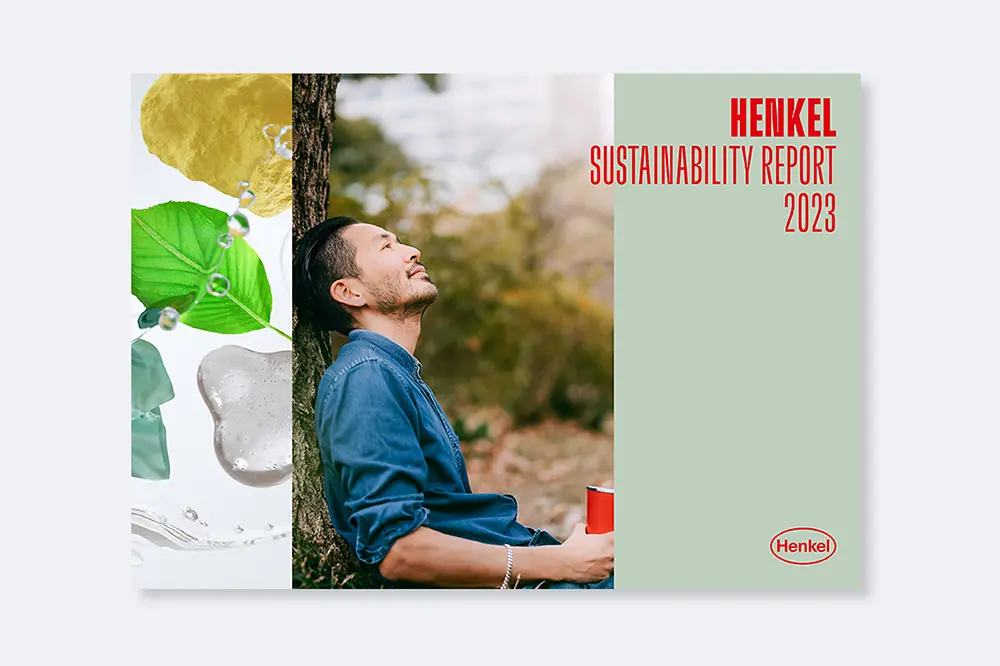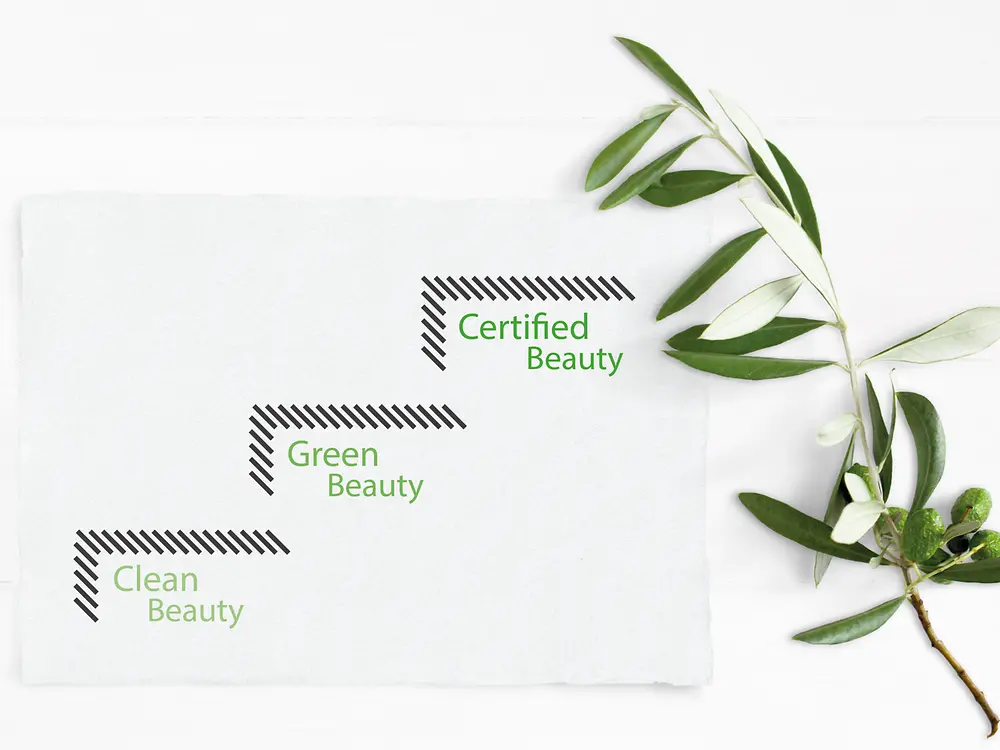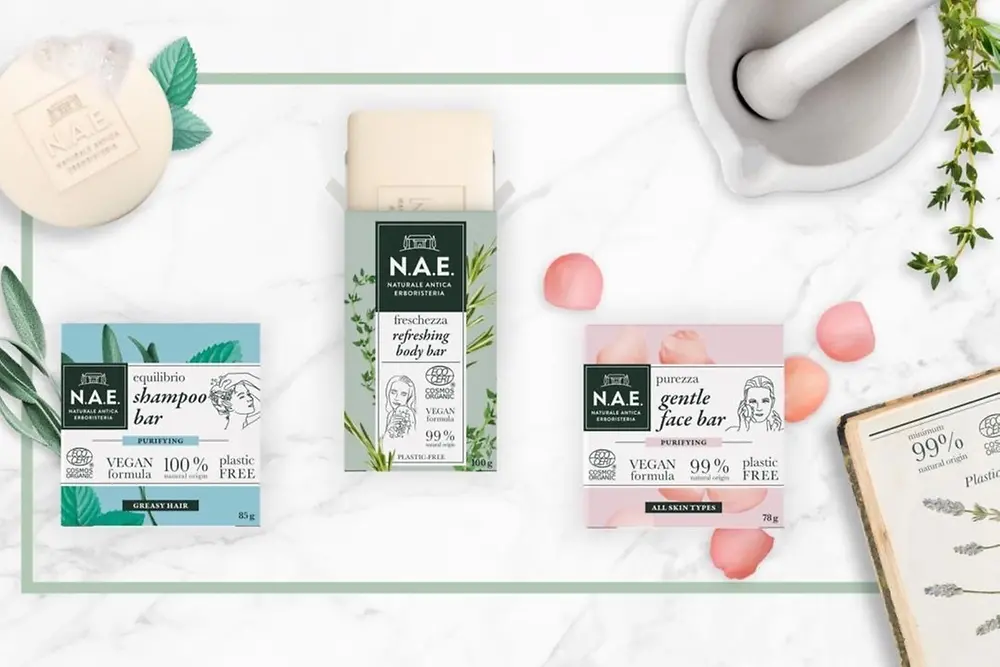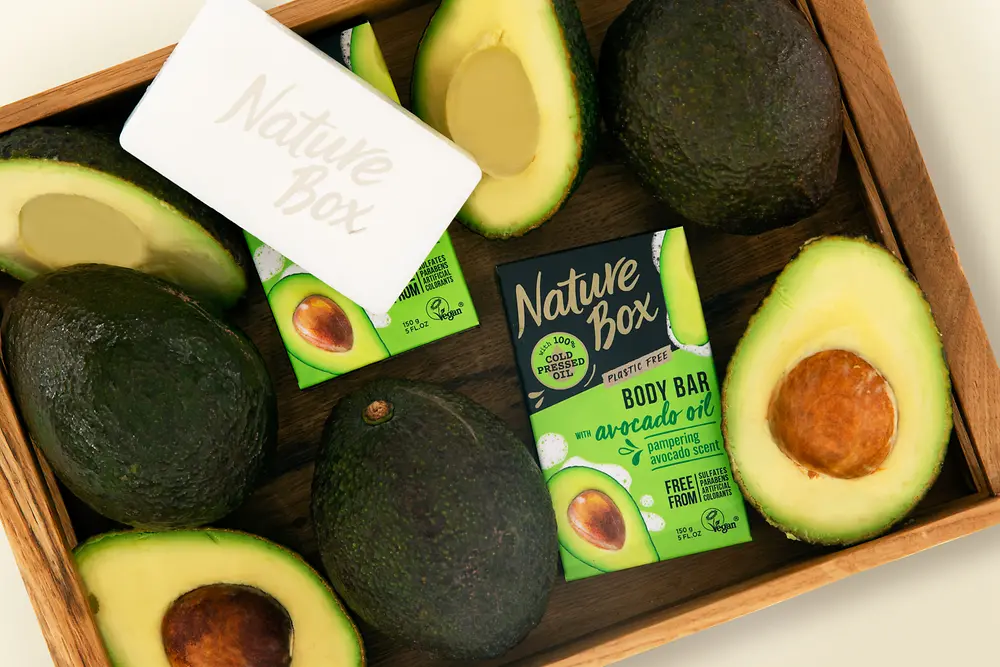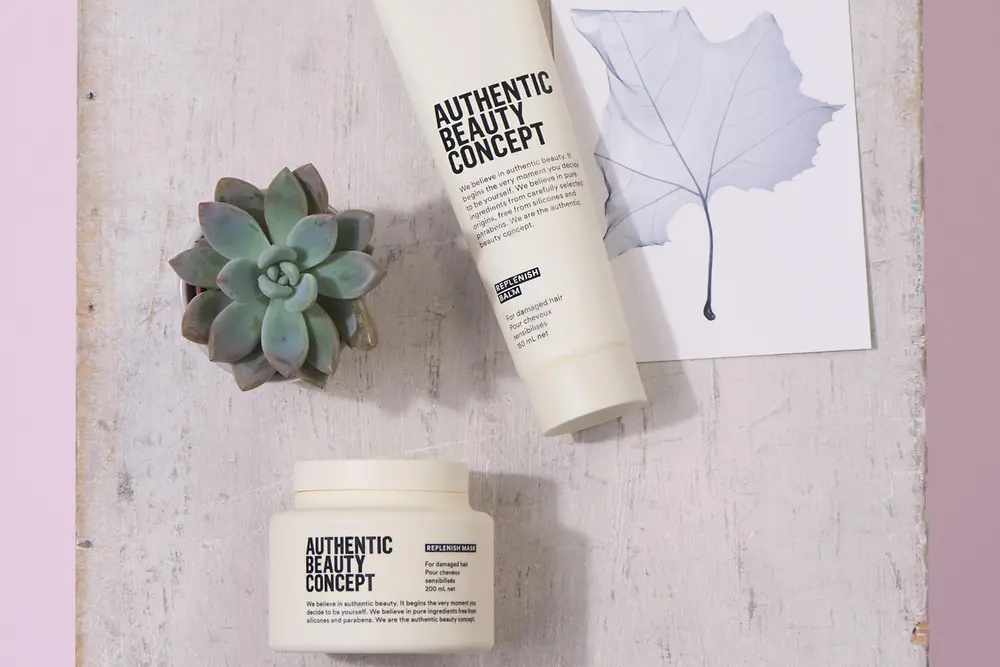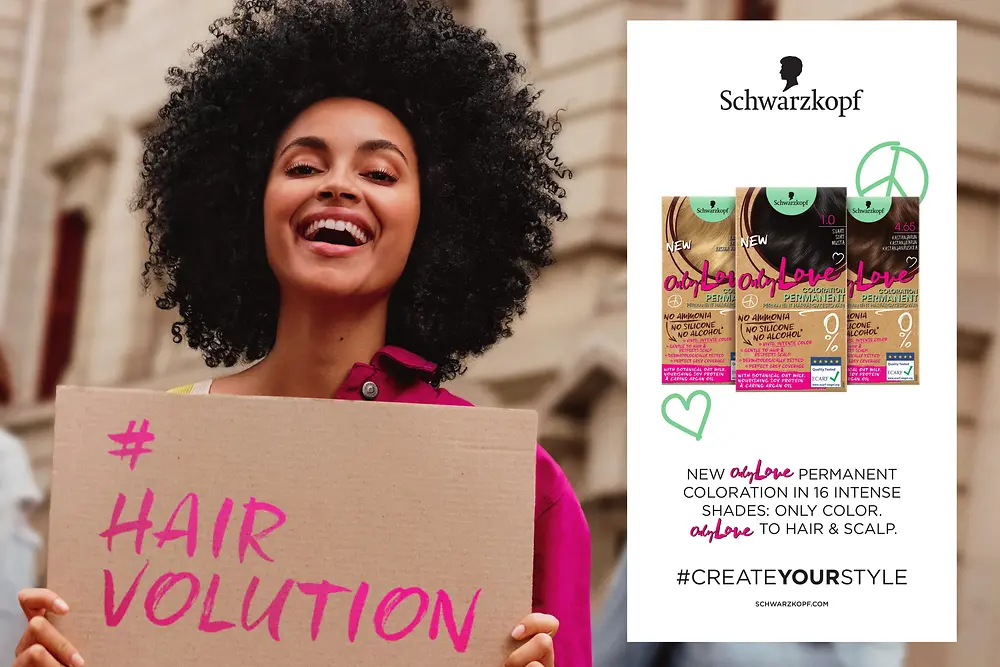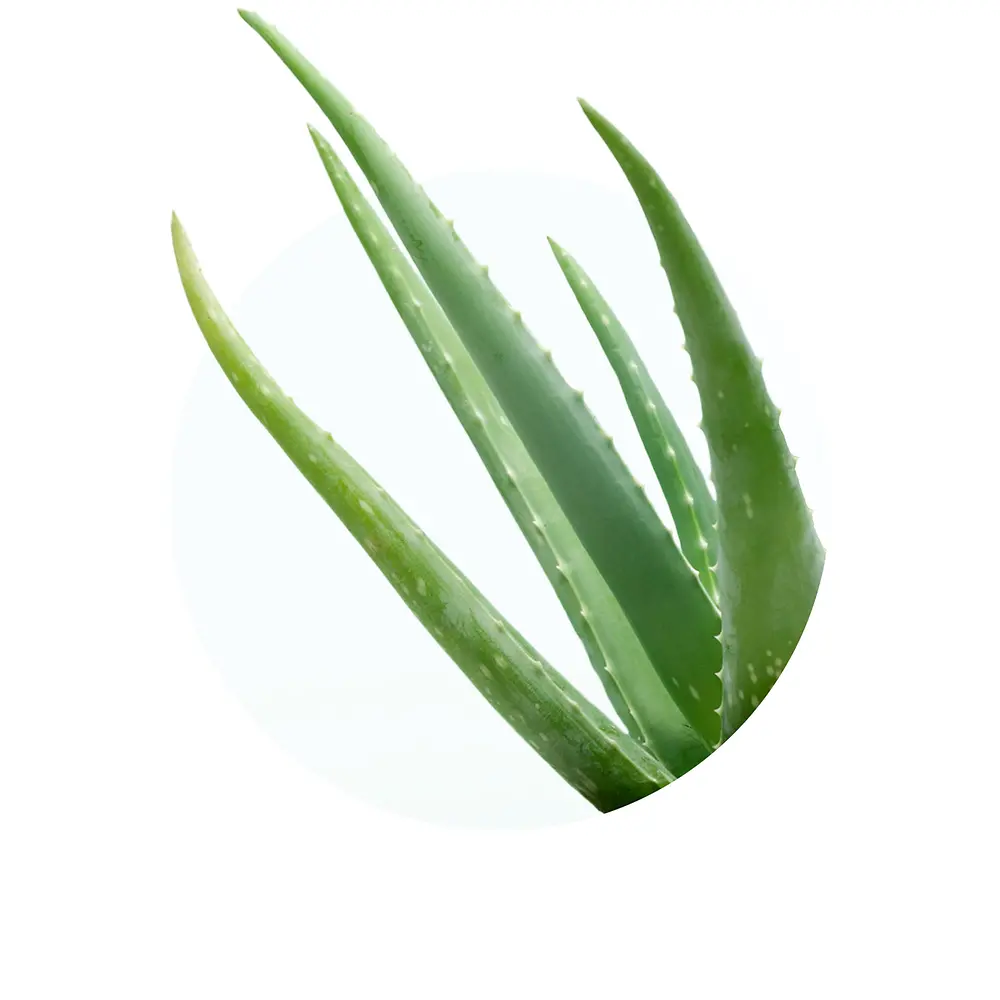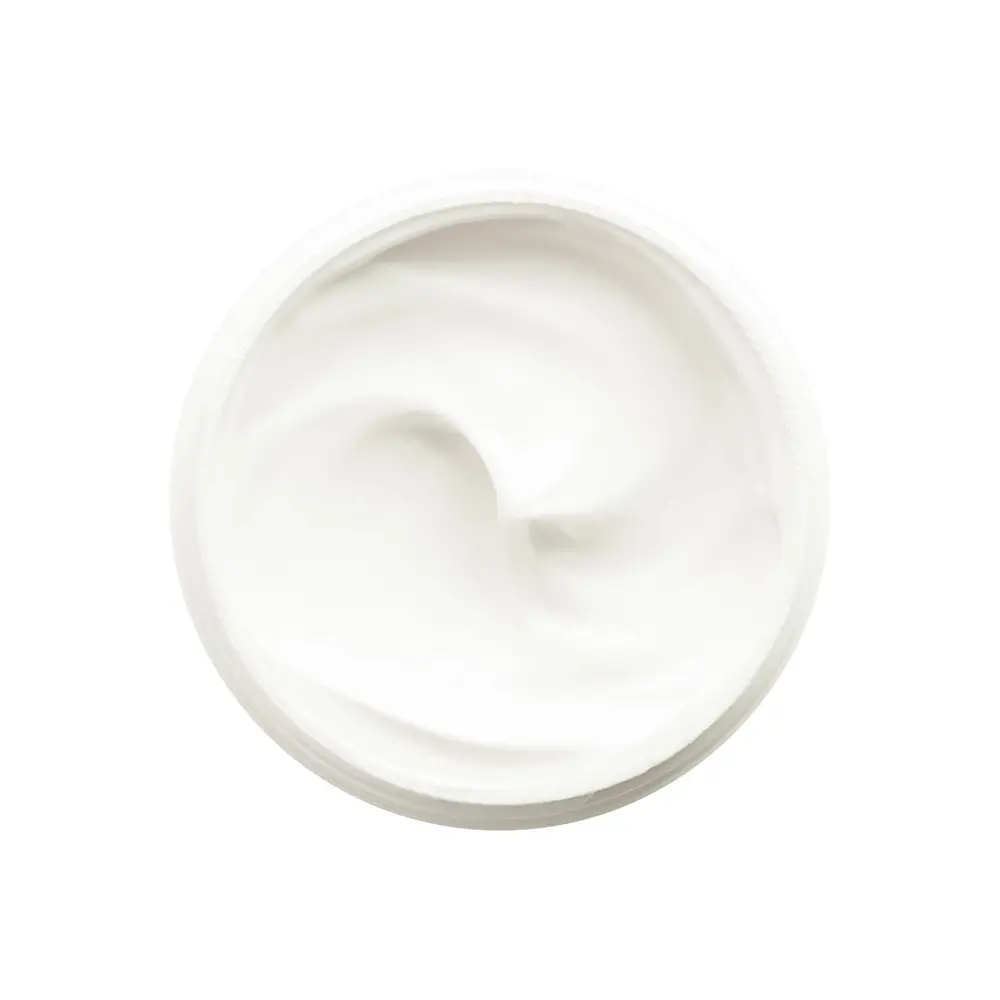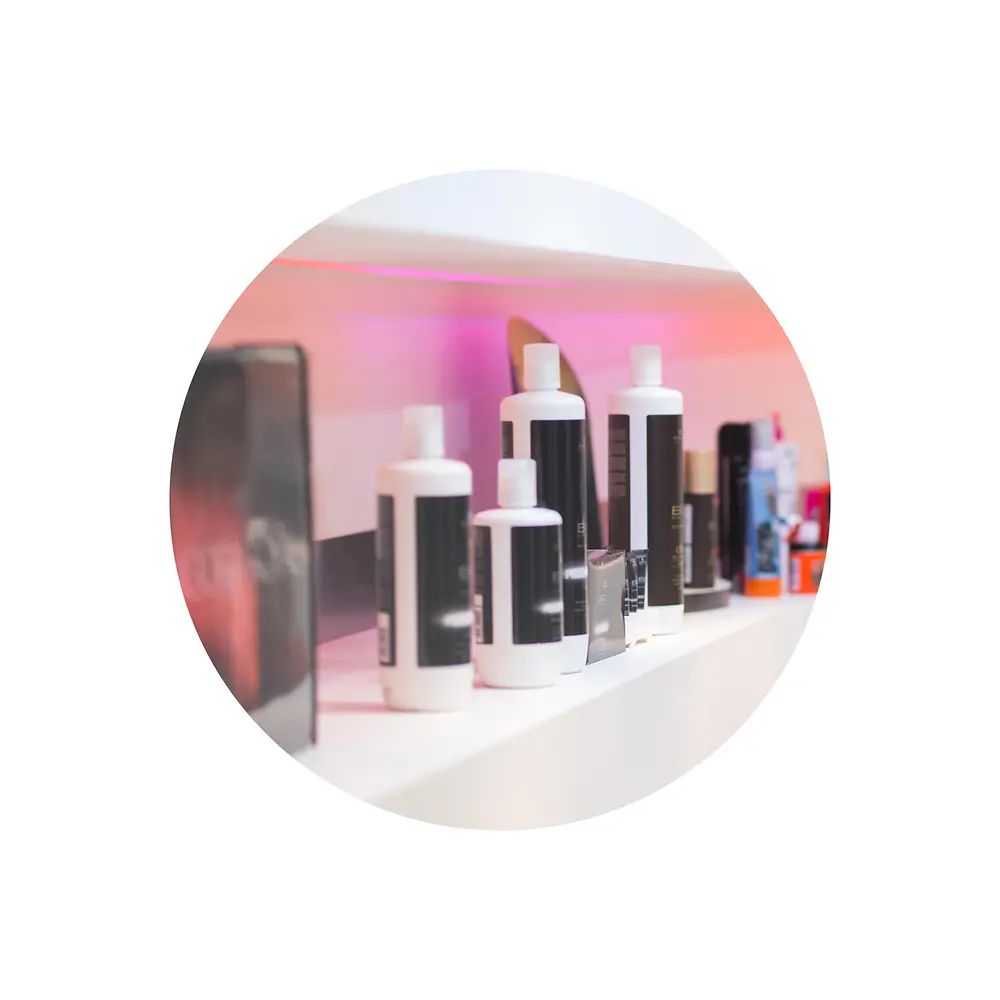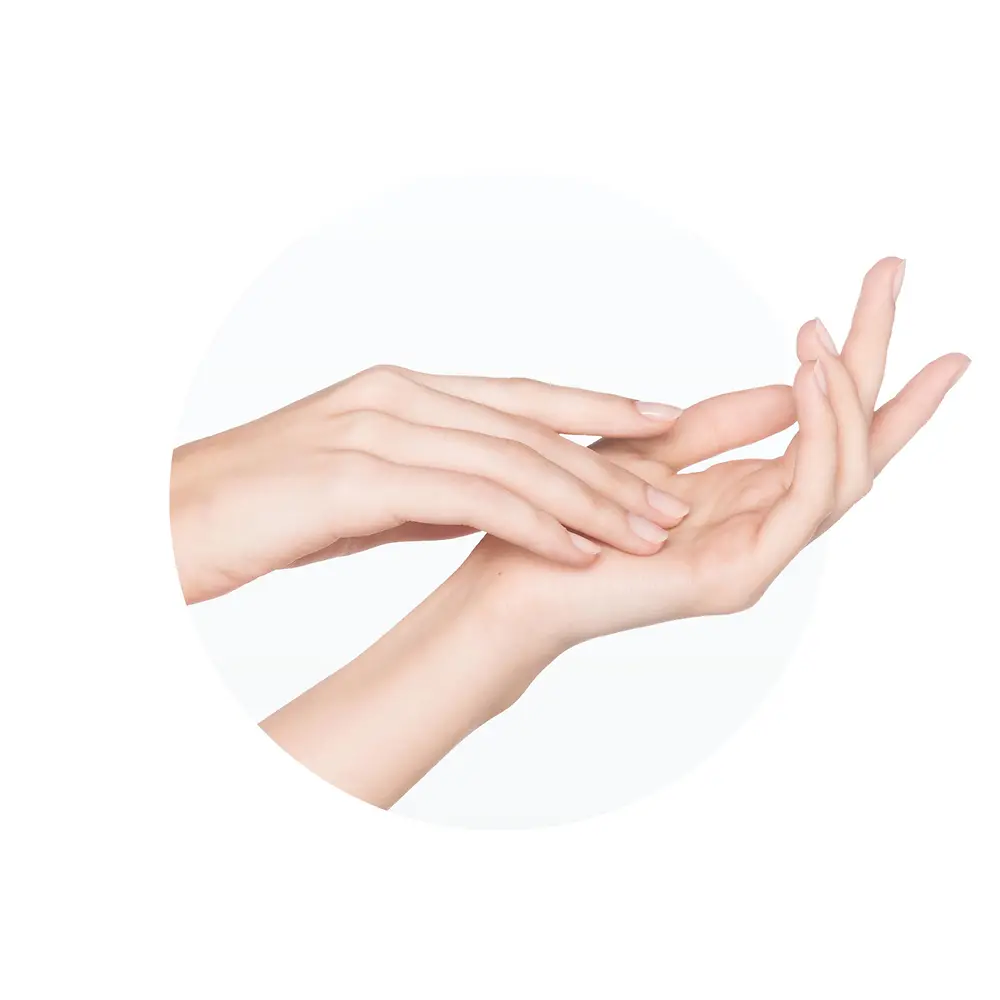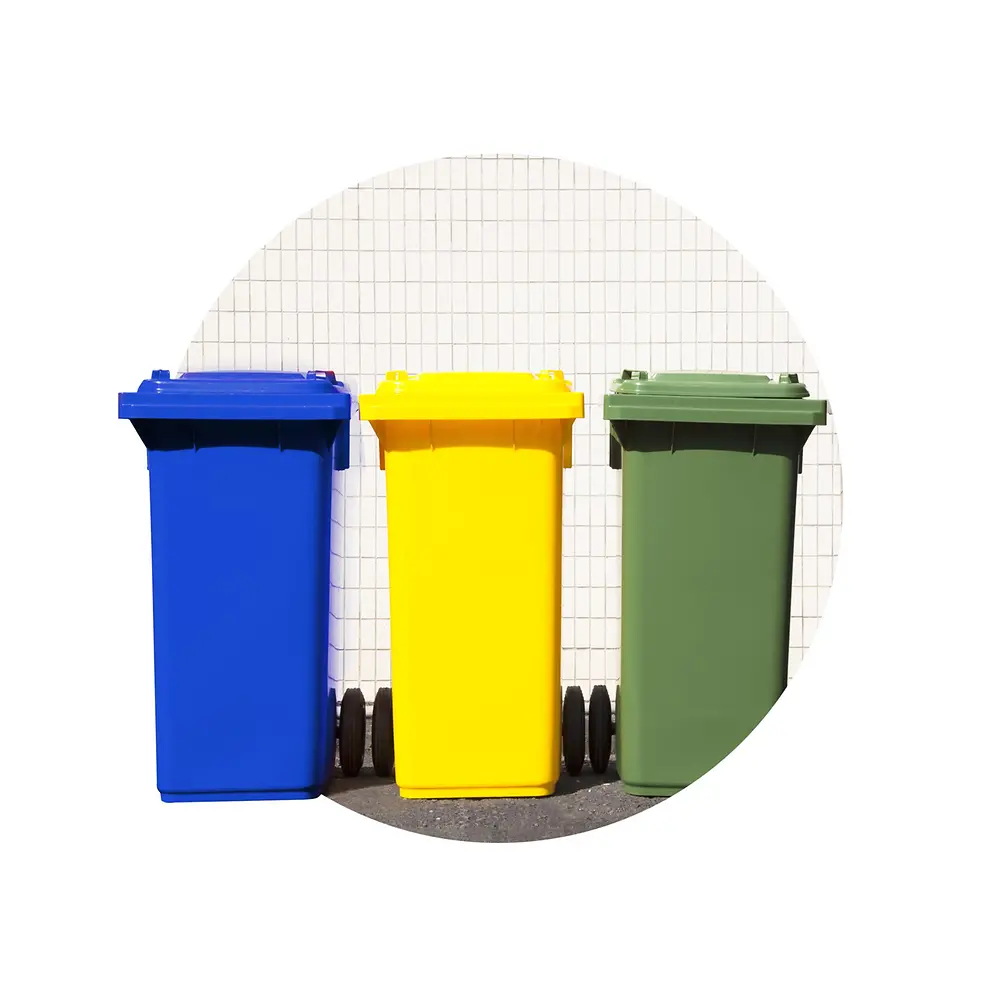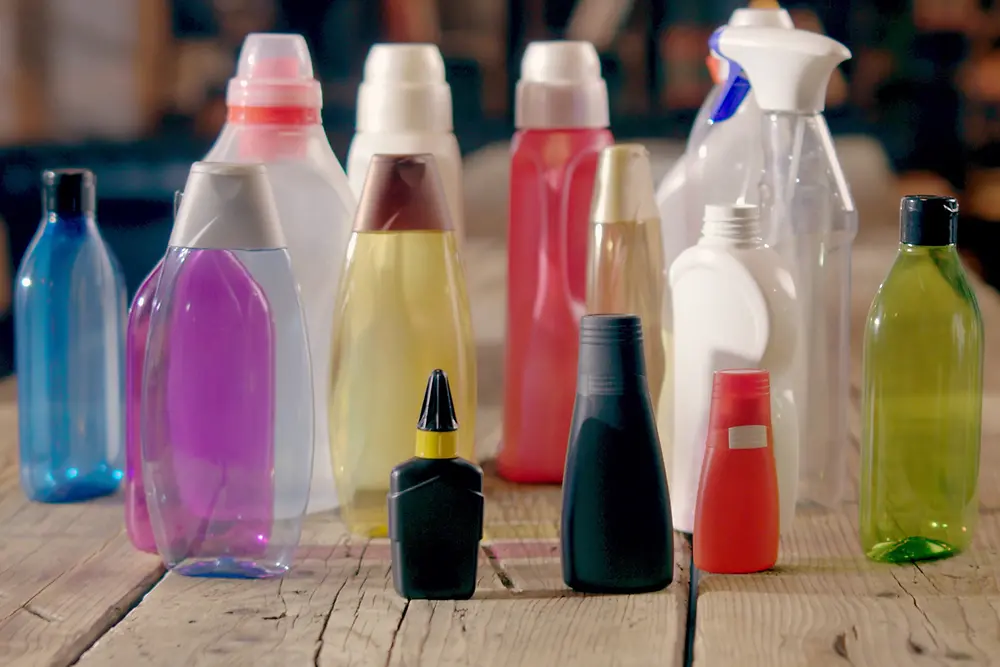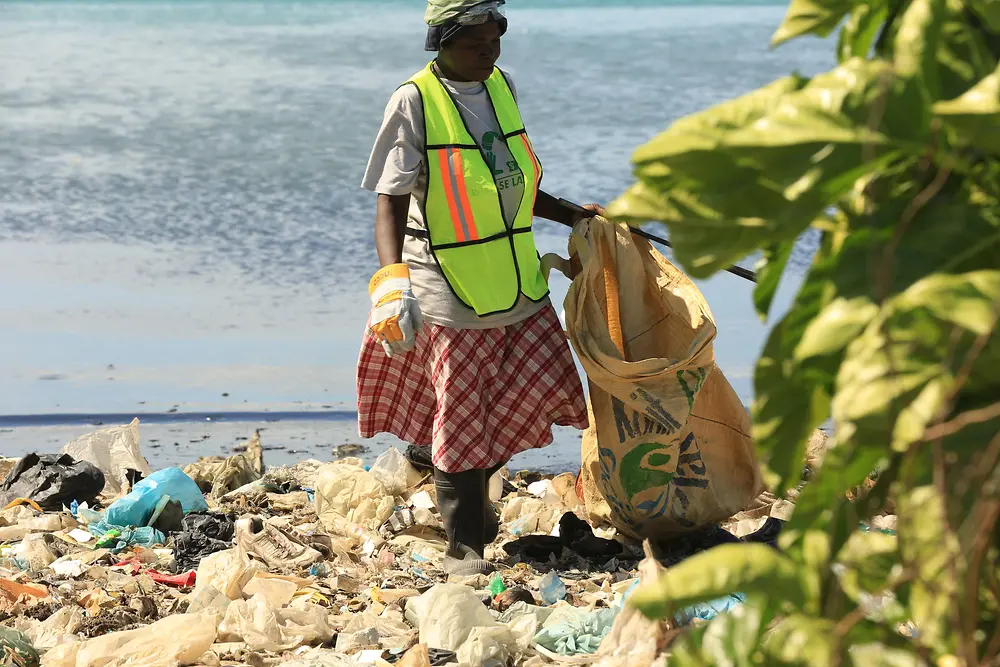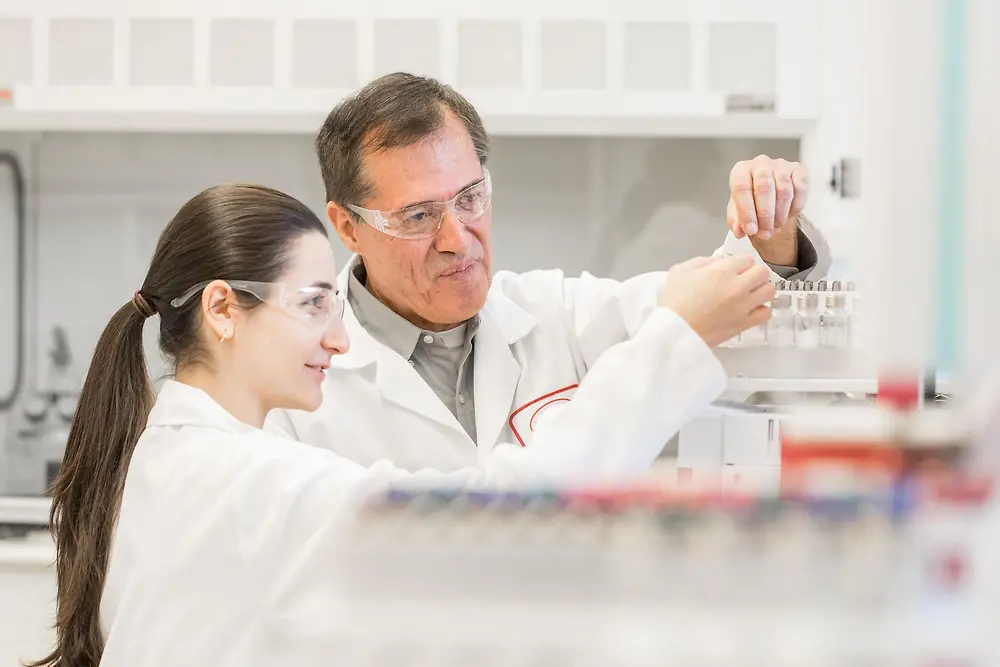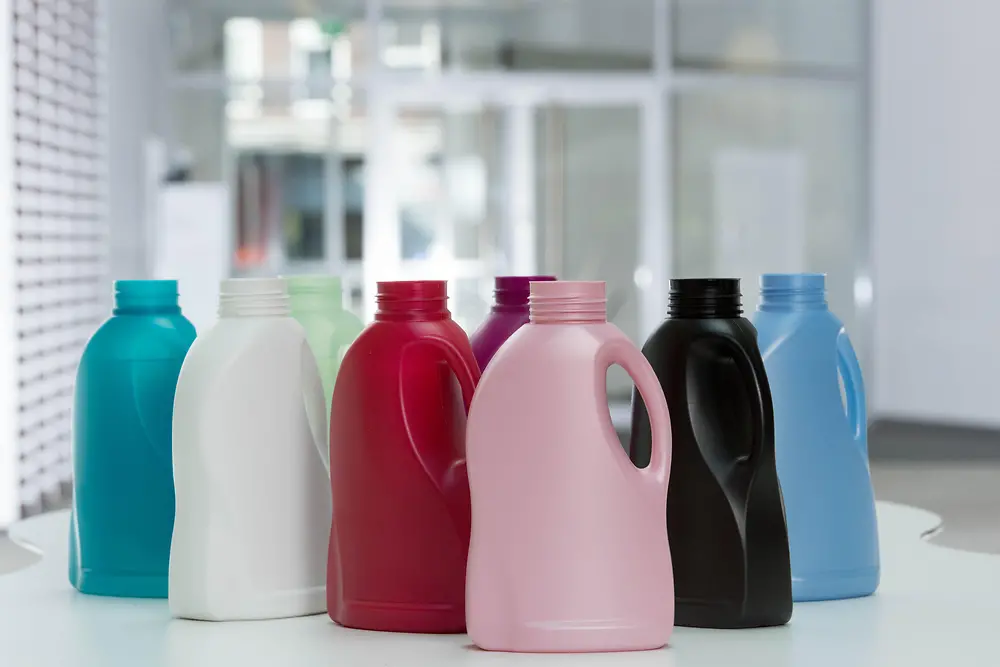Learn more about Henkel Brands & Businesses in UK & Irelands: Includes useful information about the brands, technologies and latest innovations in our business areas: Adhesive Technologies and Consumer Brands.
Green is the new black
Editor’s Note: This article was updated on June 29, 2021.
In this story, you’ll learn:
- How sustainable cosmetics got its start
- What sustainable cosmetics and green beauty mean
- Why Henkel focuses on natural cosmetics without microplastics
- How the cosmetics industry is changing
- Henkel's holistic approach to sustainable products
- How Henkel promotes sustainable consumption and equal opportunities
In the 1970s, “It’s not easy being green” had a whole different meaning to it than today. The phrase originated from a song performed by the philosophical amphibian, Kermit the Frog, lamenting the color of his skin. However, this maxim also applies to what consumers are currently putting on their skin – and modern sustainable endeavours.
Beauty revolution: The beginning of sustainable cosmetics
For the past several years, fast consumer products have aimed to be more sustainable and greatly reduced the efforts individuals need to take to do so. One of the most noticeable branches that has been impacted by this trend are nature-based and natural cosmetics. By 2025, the global organic and natural personal care market is expected to reach more than 50 billion US dollars. Now, with the visibility the internet and social influencers provide, the potential for growth is limitless. But what was the spark that led to this beauty revolution?
It all started when cosmetic connoisseurs began looking more intensively at the ingredients in their beauty products. Due to the rise in sensitive skin from pollution and stress they searched for more natural solutions. As a result, they purchased their beauty products from local organic grocery stores or made them in their own kitchens. However, in some cases, these home-made solutions didn’t quite solve the problem; the formulas were less stable, less durable, and sometimes even sticky. Once larger organizations saw these needs, not only from younger generations, but from baby boomers as well, they invested time and resources to provide effective cosmetics with more nature-based and natural ingredients, develop more sustainable packaging methods and have a stronger focus on ethically sourcing their ingredients.
Green beauty: What does it mean to be green?
To understand the importance of creating more sustainable cosmetics, it’s also important to understand that two percent of the world’s carbon footprint finds its source in cosmetics – mostly from obtaining the raw materials needed and the hot water used during the product’s consumption. A cosmetic product’s usage phase – the amount of water and its temperature – especially has a huge impact on the environment. This is one reason why a potential consumer might switch to more sustainable cosmetics and become more conscious about preserving resources like water while using a product, while receiving the health benefits they provide.
With the various “green” cosmetics on the market, it can be hard to differentiate how natural and sustainable these products are. Therefore, there are three categories that define the standards for these cosmetics, as well as represent the attitudes of consumers to natural consciousness: Clean Beauty, Green Beauty and Certified Beauty. With Clean Beauty, product research and development has a strong focus on maintaining high performance and optimal product properties, while still respecting a consumer’s skin. With the Green Beauty products, there is a greater focus on using certain nature-based ingredients and natural extracts as part of the formula and emphasizing the caring properties each extract exhibits. The last category, Certified Beauty, uses a very high percentage of ingredients of natural origin and has been certified by standards, such as COSMOS or ECOCERT, which are internationally recognized certificates for natural cosmetics.
According to Dr. Andrea Sättler, Head of Research and Development for Body Care, Skin Care and Oral Care in Henkel’s business unit Beauty Care, “Our strategy is to establish a connection between nature-based, natural and renewable raw materials on the one hand and effective cosmetic products on the other. We already use ingredients based on renewable raw materials wherever this makes sense after taking environmental, economic and social impacts into account. Whenever compatible with the product concept, we will additionally offer certified natural cosmetics with corresponding labels.”
Cosmetics without microplastics: Sustainable consumption of natural cosmetic products
From the very beginning, Henkel has had a strong background in sustainability. The company was one of the first leading consumer goods manufacturers to recognize the potential problem with microplastics in cosmetics and consequently removed microbeads that were used as exfoliating or abrasive particles in some products from their cosmetics products as early as 2016 worldwide. Now, developing more products with nature-based and natural ingredients reinforces and advances this commitment.
As part of Henkel’s sustainability strategy, the company aims to offer customers and consumers more value and a better performance at a smaller environmental footprint. Within the last five years, the Beauty Care business unit calculated the footprint of more than 170,000 product formulas and is currently developing products that help consumers reduce their footprint through an efficient use of energy and water.
Whether the ingredients used in these products are synthetic, nature-based or of natural origin, Henkel’s Research and Development team ensures that they are safe in the respective product formulas. The experts evaluate all ingredients according to the latest scientific findings. They take into account specific safety and environmental data, the actual concentration of the ingredients in the respective formulas and the corresponding conditions of use and disposal. As required by all relevant regulations, only safe products that pass the complete safety assessment are put on the market.
Many naturally derived ingredients are already used in Henkel products – not only in beauty products – but over the last years, products that promote a healthy and environmentally conscientious lifestyle have gained more recognition. Among the results of these efforts is N.A.E., a certified organic beauty brand made with ingredients like lemon, rosemary, thyme and olive oil. The product’s packaging also underlines the sustainable nature of the brand: The fully recyclable product tubes are made of renewable material that is plant-based plastic made from sugarcane-derived ethanol. The N.A.E. brand also offers solid shampoo and shower gels. The formulas are vegan and contain 99 percent natural-origin ingredients. Due to its concentrated formula, the solid shower care product is as economical as three liquid shower gels (200 ml each), with lower weight and volume. This results in lower CO2 emissions during transport. All N.A.E. face, body and hair care products are certified by ECOCERT in compliance with the COSMOS standard for organic cosmetics.
Sustainable cosmetics, natural products: The transformation at large
Although many would assume that being more sustainable means only creating new lines of products, Henkel is also upgrading some of its more familiar products and brands. One of Beauty Care’s goals over the next few years is to make its complete portfolio of beauty products more sustainable. One current example is the relaunch of Syoss brand shampoos with up to 90 percent raw materials of natural origin. The bottle bodies for these products are made of 98 percent recycled plastic. Even though the packaging is black, it is recyclable because it uses a carbon-free colorant. Another brand that is becoming more sustainable is Fa with its recent brand relaunch. Fa improved its formula with 94 percent naturally derived ingredients and up to 97 percent biodegradable ingredients while keeping the formula gentle and caring for the skin. Additionally, Fa optimized its packaging leading to 140 tons less plastic per year thanks to improved cap design and recyclable and recycled plastic in all bottles. “Consumers want sustainable products that are ethically-sourced, good for the environment and made by brands that have shared core beliefs. By transforming our extensive product portfolio – ranging from hair care, styling and colorants to body, skin care and toothpaste – we are addressing those needs. We aim to be a frontrunner with our sustainable innovations,” says Vildan Önpeker-Cerci, Corporate Vice President Body/Skin/Oral Care, Nature Brands and Sustainability at Henkel Beauty Care.
Sustainable products and green beauty
Sustainable products: More than skin deep
Henkel uses a holistic approach to sustainability that covers the entire value chain: from sourcing of ingredients and packaging materials, to production, logistics, consumers’ usage of the product, and disposal. During the early stages of product development, sustainability, consumer expectations and the challenges that come with green chemistry are considered. “We have a standard tool that compiles all of the sustainability data and therefore provides our developers with easy access to information about how our formulas contribute to sustainability, as well as full transparency about potential optimizations that reduce the overall footprint,” says Dr. Joachim Kremer, Senior Manager Regulatory Affairs & Global Sustainability at Henkel Beauty Care.
Sustainability along the value chain
One stand-out factor regarding sustainable products is the ethical sourcing of ingredients which is gaining more and more importance. Not only has Henkel been involved in sourcing ingredients responsibly, but also invested in small-holder farmers. By working with the organization Solidaridad, the company has supported small-holder palm oil farmers in South America, Africa and Asia and guar farmers with Solvay’s Sustainable Guar Initiative in India. In both cases, the farmers receive training in seeding, culturing and harvesting their crops under sustainable and fair working conditions.
When it comes to packaging, Henkel’s Beauty Care products have used recycled plastic in the past, but now are incorporating even more sustainable packaging methods by utilizing the Plastic Bank’s Social Plastic into new product packaging. The Plastic Bank is a social enterprise Henkel has been partnering with since 2017. The joint goal: keep plastic waste from entering the oceans, while improving the lives of people in poverty – especially in countries that lack waste management infrastructure. With the help of Henkel, Plastic Bank opened three additional plastic collection centers in Haiti, one of the poorest countries in the world. The local population can return collected plastic waste and exchange it for money, goods, or services to improve their lives. This material, called Social Plastic, is then integrated back into the plastic value chain. Henkel also defined overall packaging targets: By 2025, all product packaging will either be reusable, recyclable, or compostable, and the packaging of consumer goods products in Europe will contain at least 35 percent recycled material.
Life cycle analysis has shown that the consumer use phase contributes to more than 80 percent of the total carbon footprint of cosmetic products, most of which stems from heating water for showering. Although Henkel, as a manufacturer, is responsible for producing products sustainably, it is also the responsibility of the end users to make their use of these products more sustainable and create even less CO2 emissions. One way to boost more sustainable consuming behaviors is the Be smarter, Save water initiative at Henkel, which encourages consumers to turn off their water faucets when they are brushing their teeth and taking shorter showers. To support this endeavor, Beauty Care has developed water saving products such as dry shampoo and leave-in conditioner that reduce the amount of time consumers will need to spend in the shower, therefore using less water overall. Solutions like these help people live well because they generate value, while also using fewer resources.
To truly be sustainable, companies must also have a positive impact on the communities around them and create more awareness for global problems. Over time, the brand Schwarzkopf has partnered with altruistic organizations around the world, benefiting a broad spectrum of causes and has even funded its own Million Chances initiative. It specifically focuses on supporting local and international organizations that empower women and girls to build a successful personal and professional future. For the last nine years, the Shaping Futures initiative has helped over 2,200 young adults from challenging backgrounds and taught them to cut and style hair. Saskia Schmaus says, “Our long-term commitment to social engagement goes beyond direct business interests and includes corporate volunteering, social partnerships, brand engagement and emergency aid.”
